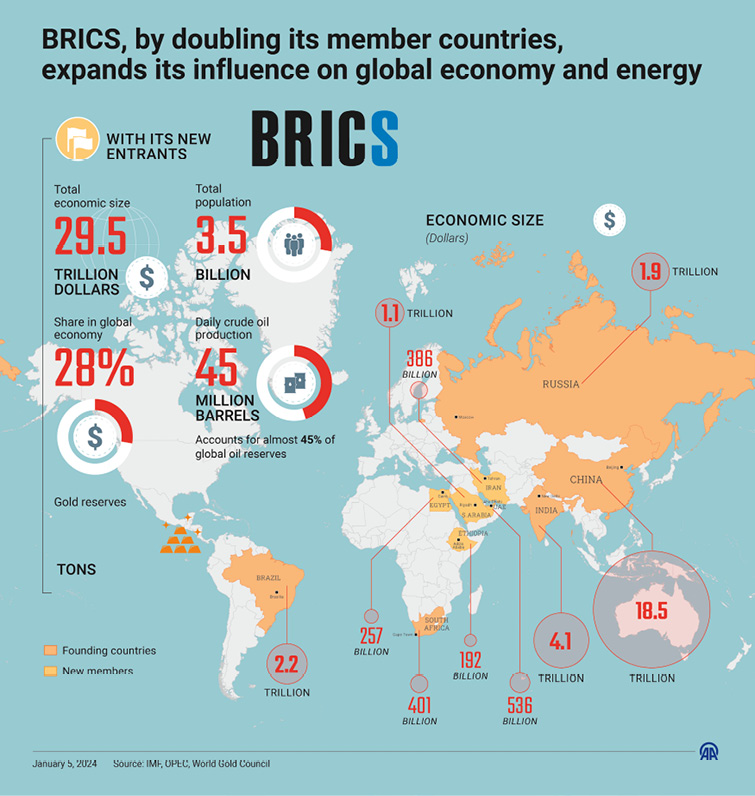The 2025 BRICS Summit in Rio de Janeiro marked a pivotal moment for the Global South. For South Africa, it was more than diplomacy. It was a declaration of intent: to help shape a multipolar world that gives African voices more power, more agency, and more influence, write Ido Lekota.
The recent 2025 BRICS Summit held in Rio de Janeiro saw South Africa—as part of the global South—reaffirming its commitment to multilateralism, defending international law and promoting a fairer, more representative global order.
This happened with the country’s co-signing of the historic Joint Declaration titled “Strengthening Global South Cooperation for More Inclusive and Sustainable Governance”, which included 126 commitments spanning global governance, finance, health, artificial intelligence, climate change and other strategic areas concluded with several significant outcomes that underscored the bloc’s commitment to advancing a coordinated agenda on economic development, and geopolitical cooperation.
The declaration also expressed concern about rising global military expenditures and advocated for multilateral approaches respecting diverse national perspectives on global challenges, including sustainable development and climate action.
The summit also adopted the BRICS Leaders’ Framework Declaration on Finance—which is the first collective BRIC framework guiding coordinated climate finance action aiming to mobilise substantial resources—up to R24.9-trillion by 2035 for climate action in the Global South to strengthen the bloc’s role in shaping global governance ahead of COP30. Meanwhile, the Summit has also recognised the Tropical Forest Forever Facility (TFFF) as an innovative mechanism to mobilise long-term funding for tropical forest conservation.
The TFFF is a Brazil-proposed, BRICS-backed multilateral climate finance mechanism designed to mobilise large-scale, predictable and performance-based funding to conserve tropical forests globally.
It aims to preserve about one billion hectares of tropical forests across roughly 80 developing countries by providing financial incentives to countries that maintain and expand their forest cover. The facility aims to raise around R2.39-trillion to support forest conservation efforts.
A major highlight of the Summit was also the assertive climate agenda with the calling for strengthened climate finance, improved carbon accounting and the creation of a developing country-led platform to align trade with sustainability goals.
AI governance was also featured for the first time, with a joint statement recognising AI’s potential for economic and sustainable developmental progress. The Summit also announced the launching of the BRICS Partnership for the Elimination of Socially Determined Diseases—reflecting a commitment to health equity and addressing the root causes of health disparities such as poverty and social exclusion.
Most importantly, the Summit emphasised the need for reforms in international financial institutions like the International Monetary Fund (IMF) and the World Bank to better represent emerging and developing countries.
It also underlined the importance of strengthening the participation of developing countries—particularly from Africa, Latin America and the Caribbean—in global decision-making processes. Strategically speaking, the 2025 BRICS Summit in Rio de Janeiro has resulted in a stronger, more inclusive BRICS commitment to global governance reform, sustainable development and innovative cooperation.
On the overall, the 2025 BRICS Summit in Rio de Janeiro marked a milestone in strengthening cooperation among emerging economies, focusing on inclusive governance, climate leadership, technological innovation, health equity and global financial reform. The summit positioned BRICS as a key player in advancing a multipolar world order with a strong emphasis on the interests and leadership of the Global South.
For South Africa, this means enhanced global influence, expanded economic opportunities, greater access to development finance, in addition to a strategic role in shaping the future of both Africa and the Global South within the international system. Meanwhile, South Africa’s participation in BRICS continues to enhance its international influence by providing a platform to advocate for reforms in global governance structures and to push for a more unipolar world order—where developing nations have greater agency.
As the only African founding member, it is important that South Africa leverages BRICS to champion African interests, including the operationalisation of the African Continental Free Trade Area and the advancement of Africa’s Agenda 2063.
As it is, BRICS membership has led to significant growth in South Africa’s trade with other member states, with BRICS accounting for 21% of South Africa’s trade in 2022. The block is a major source of foreign direct investment in sectors such as mining, energy, transportation and technology.
On the other hand, the New Development Bank, established by BRICS, has approved multiple infrastructure and development projects in South Africa—including the funding for clean energy and water infrastructure. The NDB Africa Regional Centre in Johannesburg further positions South Africa as a gateway for continental development finance. South Africa also benefits from joint research projects, technology transfers and innovation platforms within BRICS, supporting its ambitions in the Fourth Industrial Revolution (4IR) and energy transition.
The summit’s focus on health governance and elimination of socially determined diseases aligns with South Africa’s priorities in addressing public health access inequities and other challenges. BRICS cooperation is crucial for South Africa’s energy recovery and transition to a low carbon economy. The summit’s climate finance commitments and energy research platforms provide both expertise and funding for South Africa’s ambitious energy transformation plans.
Most importantly, amid the rising global tensions and shifting alliances, BRICS offers South Africa an alternative diplomatic space to navigate strained relations with Global North countries, while deepening ties with emerging economies of the Global South.
As for the 2025 BRICS summit, it has reinforced South Africa’s role as a leading advocate for the Global South, promoting inclusive development and a fairer international system.
Ido Lekota is a media practitioner and an independent socio-political commentator.



